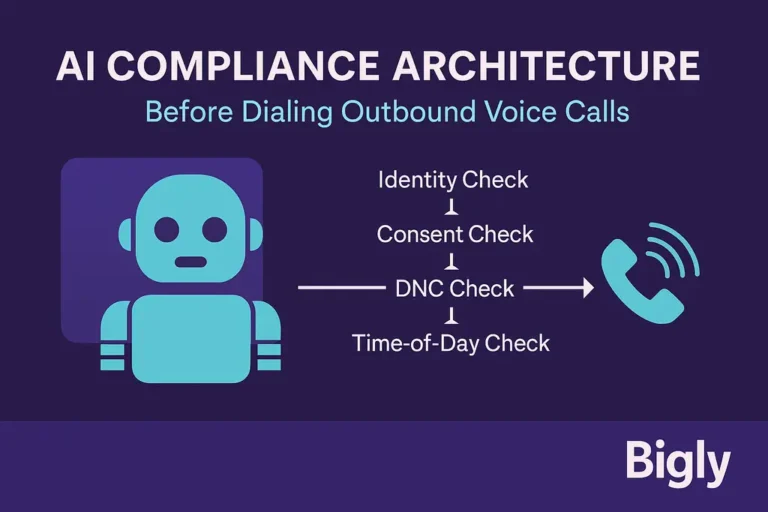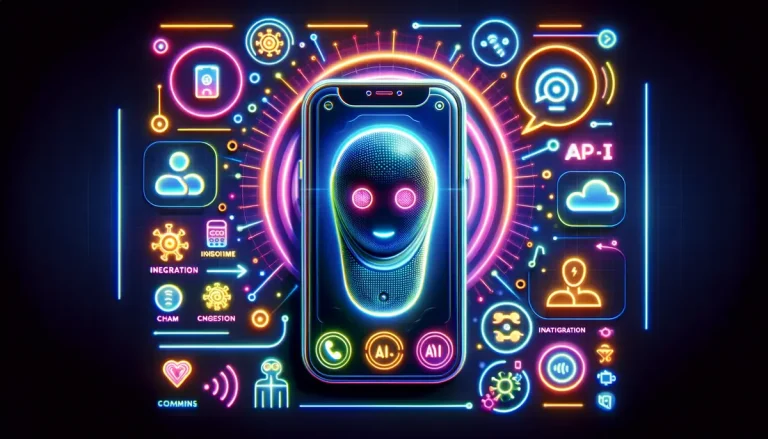Have you ever wished you could delegate your phone calls to someone else—perhaps even an AI? With ChatGPT, that wish is now a reality. Imagine an AI assistant capable of making phone calls on your behalf, handling everything from scheduling appointments to conducting customer service interactions while maintaining a natural, human-like conversation.
In this guide, we’ve explored how you can use the power of ChatGPT to make phone calls, streamlining personal and business communications. Whether you’re a busy professional or a business owner looking to enhance efficiency, AI-powered phone calls could be the solution you’ve been waiting for.
First, let’s understand ChatGPT
ChatGPT, developed by OpenAI, is an advanced language model designed to understand and generate human-like text. It can engage in conversations, answer questions, and even perform tasks based on the input it receives. One of its more recent applications is in making phone calls, where it can simulate a human conversation, ensuring a smooth and natural interaction.
Now You Can Use ChatGPT for AI Phone Calls
AI phone calls are revolutionizing the way we communicate. Unlike traditional phone calls, which require human intervention, AI-powered calls are automated, allowing for efficiency and scalability. With AI, the call experience becomes more consistent, reliable, and tailored to specific needs.
As AI continues to evolve, its role in communication is expanding from text-based interactions to full-fledged voice conversations.
How to Set Up ChatGPT for Making Phone Calls?
Here is our step-by-step process to set up ChatGPT for making calls:
Step 1: Accessing ChatGPT
To start, you’ll need to access ChatGPT through a platform that supports it, such as OpenAI’s API or integrated apps that offer ChatGPT as a service.
These platforms provide the interface and tools necessary to interact with the AI. Setting up an account and obtaining API keys are usually the first steps in gaining access to ChatGPT’s capabilities.
Step 2: Configuring the Phone Call Functionality
Once you have access to ChatGPT, the next step is configuring it to make phone calls. This involves integrating ChatGPT with a telecommunication service provider like TelecomsXChange or using a custom GPT tool specifically designed for phone calls.
The configuration process includes setting up the necessary permissions, inputting the phone numbers, and defining the call parameters, such as the purpose of the call and the desired outcomes.
Step 3: Customizing the Call Flow
Customizing the call flow is critical for guaranteeing that ChatGPT handles the conversation effectively. This involves scripting the AI’s responses to various scenarios it might encounter during the call.
For example, if the AI is making a customer service call, you would need to program it to respond to common inquiries, handle objections, and provide accurate information.
The key here is to make the conversation as natural and human-like as possible, which requires thoughtful planning and testing.
Step 4: Testing and Optimization
Before deploying ChatGPT for real-world phone calls, thorough testing is essential. Testing allows you to identify any issues in the call flow, such as miscommunications or technical glitches, and address them before they affect actual users.
Optimization involves fine-tuning the AI’s responses and ensuring that it performs consistently well across different types of calls. Continuous testing and optimization will help improve the overall experience and ensure that the AI meets the desired standards.
Practical Applications of AI Phone Calls with ChatGPT
Here is some practical applications of AI phone calls with ChatGPT:
Personal Use Cases
AI phone calls aren’t just for businesses—they can be incredibly useful in personal life as well. Imagine you’re swamped with tasks, and you need to make a reservation at a restaurant, confirm an appointment, or check on a service provider.
Instead of making the call yourself, you can delegate these tasks to ChatGPT. The AI can handle these routine interactions efficiently, freeing up your time for more important matters.
Business Use Cases
In a business context, AI phone calls can significantly enhance operations. For instance, a company can use ChatGPT to manage customer support calls, handle sales inquiries, or even conduct follow-up calls with clients.
The AI ensures that every call is consistent, accurate, and aligned with the company’s communication standards. This not only improves customer satisfaction but also increases the efficiency of business operations.
Industry-Specific Applications
Different industries can benefit from AI phone calls in unique ways. In healthcare, for instance, AI can be used to schedule appointments, provide patients with information about their prescriptions, or even remind them of upcoming visits.
In retail, AI can handle customer inquiries about product availability, order status, or return policies. The possibilities are vast, and as AI technology continues to evolve, its applications will only expand further.
The Top Benefits of Using ChatGPT for Phone Calls
Here are some key benefits of using ChatGPT for phone calls:
Efficiency and Productivity
One of the most significant benefits of using ChatGPT for phone calls is the boost in efficiency and productivity. By automating routine phone calls, you can free up valuable time for more critical tasks.
For businesses, this means employees can focus on higher-value activities, while the AI handles repetitive, time-consuming calls. The result is a more streamlined workflow and better overall productivity.
Scalability
Another major advantage of AI phone calls is scalability. Unlike human agents, who can handle only a limited number of calls at a time, AI can manage multiple calls simultaneously without compromising on quality.
This makes it possible to scale operations quickly and efficiently, whether you’re handling customer support, sales inquiries, or any other type of communication.
Consistency and Accuracy
Consistency is key in communication, and AI excels in this area. With ChatGPT, every phone call is handled in the same way, ensuring that the information provided is accurate and consistent across all interactions.
This reduces the risk of human error and ensures that your communication is always on point, whether it’s a simple inquiry or a complex customer service issue.
What are Some Common Challenges and Considerations?
Here are some common challenges and considerations:
Technical Challenges
While AI phone calls offer many benefits, there are also technical challenges to consider. For instance, the quality of the call can be affected by various factors, such as poor internet connection or issues with voice recognition.
Additionally, the AI may struggle with understanding certain accents or dialects, which can lead to miscommunication. It’s important to be aware of these potential challenges and have contingency plans in place to address them.
Ethical Considerations
Ethics play a crucial role in the deployment of AI phone calls. One of the primary concerns is transparency—users should be aware that they are speaking to an AI and not a human.
Consent is another critical issue; individuals should have the option to decline AI interactions if they prefer to speak with a human representative. Ensuring that your AI implementation adheres to ethical guidelines is essential for maintaining trust and credibility with your audience.
User Acceptance
User acceptance is another important factor to consider. Some people may be hesitant or uncomfortable with the idea of speaking to an AI on the phone.
Overcoming this skepticism requires educating users about the benefits of AI phone calls and providing a seamless experience that meets their needs. Building user trust through transparency and consistent performance will be key to the successful adoption of AI phone calls.
What is the Future of AI Phone Calls?
Here is what the future of AI phone calls looks like:
Technological Advancements
The future of AI phone calls is bright, with numerous technological advancements on the horizon. As AI continues to improve, we can expect even more sophisticated and natural-sounding conversations.
Future developments may include better voice recognition, enhanced personalization, and the ability to handle more complex interactions. These advancements will make AI phone calls even more versatile and valuable in both personal and business contexts.
Integration with Other Technologies
AI phone calls are not an isolated technology—they can be integrated with other tools and systems to create a more comprehensive communication solution.
For example, integrating AI phone calls with a CRM system can provide context-aware conversations, where the AI has access to customer history and preferences. This level of integration can lead to more personalized and effective interactions, enhancing the overall customer experience.
Impact on Communication Trends
AI phone calls are poised to have a significant impact on communication trends in the coming years. As more businesses and individuals adopt this technology, we may see a shift away from traditional human-to-human phone calls in favor of AI-driven conversations.
This shift could lead to new standards in communication, where efficiency, consistency, and scalability are prioritized over the personal touch of human interaction.
The Bottom Line
Making phone calls with ChatGPT is not just a possibility—it’s a powerful tool that can transform the way you communicate. By following the steps outlined in this guide, you can set up ChatGPT to make phone calls, customize its responses, and optimize its performance for a variety of use cases.
Whether you’re looking to save time in your personal life or enhance your business operations, AI phone calls offer a range of benefits that are hard to ignore. Now is the time to explore this technology and see how it can work for you.
Frequently Asked Questions (FAQs)
How secure are AI phone calls?
AI phone calls are generally secure, but the level of security depends on the platform and tools you use. It’s essential to choose a reputable provider that offers encryption and other security measures to protect your data.
Can AI phone calls be used for emergencies?
While AI phone calls can be useful in many scenarios, they may not be suitable for emergencies where human judgment is critical. It’s recommended to use AI phone calls for non-urgent tasks and rely on human interaction for emergencies.
What are the limitations of ChatGPT in making phone calls?
ChatGPT is a powerful tool, but it has limitations, such as difficulty in understanding accents or handling highly complex conversations. Continuous testing and optimization can help mitigate some of these challenges.
How much does it cost to set up AI phone calls with ChatGPT?
The cost of setting up AI phone calls with ChatGPT varies depending on the platform and usage. Generally, there may be costs associated with API access, integration, and usage fees. It’s advisable to review the pricing structure of the tools and platforms you choose to use.







